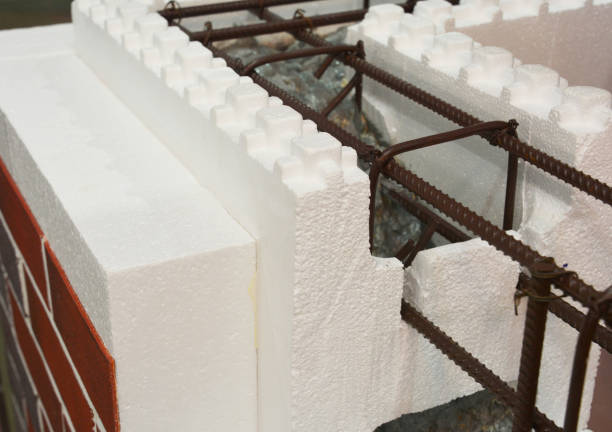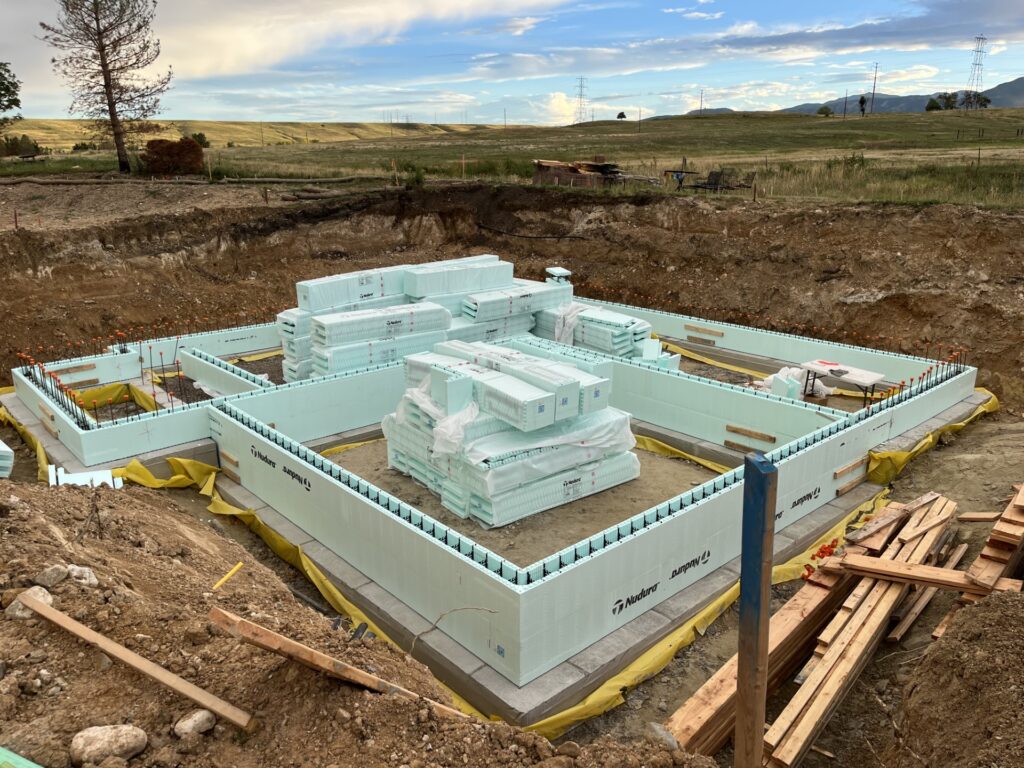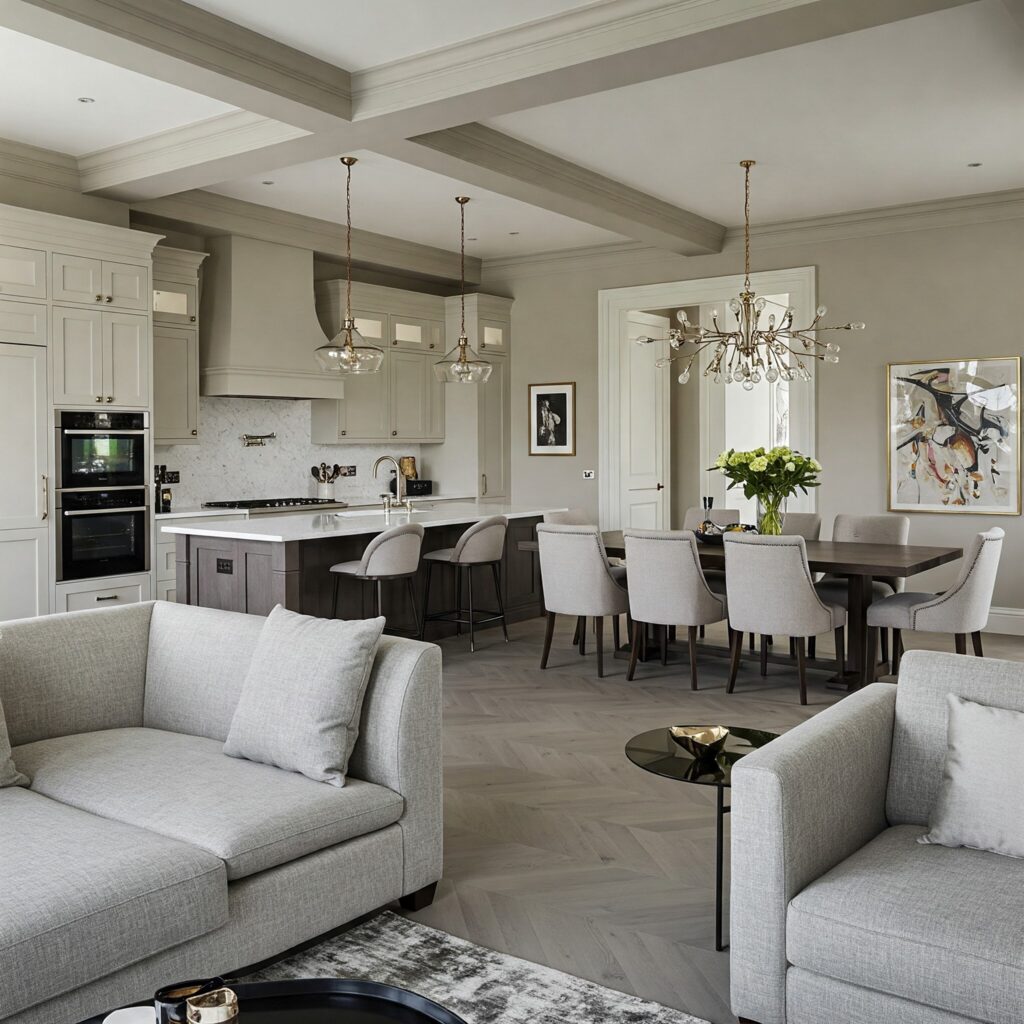When it comes to building a home, durability, energy efficiency, and long-term reliability are top priorities for homeowners and builders alike. One construction method that has steadily gained recognition for meeting these demands is Insulated Concrete Form (ICF) wall construction. Known for its impressive strength, exceptional energy efficiency, and ability to withstand extreme conditions, ICF walls have become a preferred choice for both residential and commercial projects. In this blog, we’ll explore the longevity and structural integrity of ICF walls, backed by industry statistics, expert insights, and real-world performance data.
What Are ICF Walls?
Insulated Concrete Forms, or ICF walls, are a type of building system that combines reinforced concrete with insulating foam to create a solid, energy-efficient wall. Unlike traditional wood-frame construction, ICF walls are formed by stacking interlocking foam blocks that are then filled with reinforced concrete. This combination creates a seamless, monolithic wall that excels in strength, insulation, and durability. The result is a building envelope that provides superior protection against environmental factors, enhances energy efficiency, and offers a longer lifespan than conventional construction methods.
Longevity: Why ICF Walls Stand the Test of Time
One of the most compelling benefits of ICF walls is their longevity. Research and real-world applications indicate that ICF structures can easily last 100 years or more when properly designed and maintained. Unlike traditional wood-frame homes, which are susceptible to rot, termite damage, and warping, ICF walls are impervious to these common issues. Concrete provides inherent resistance to fire, moisture, and pests, while the insulating foam shields the interior from temperature fluctuations and condensation.
A study conducted by the Portland Cement Association highlights that homes built with ICF walls experience significantly less structural deterioration over time compared to wood-frame homes. In areas with high humidity, coastal weather, or heavy rainfall, the difference becomes even more pronounced. ICF walls resist the common problems of mold growth and water infiltration that can compromise the integrity of traditional construction materials. This longevity not only ensures a safer home for residents but also preserves property value over the long term.
Structural Integrity: Strength You Can Count On
The structural integrity of ICF walls is another reason why builders and homeowners choose this method. The reinforced concrete core of ICF walls provides exceptional compressive strength, while the interlocking foam forms add stability during construction and serve as a permanent insulation layer. According to the National Ready Mixed Concrete Association, properly reinforced ICF walls can withstand lateral loads of up to 3,000 pounds per linear foot, making them highly resistant to extreme weather events such as hurricanes, tornadoes, and seismic activity.
In fact, ICF homes have demonstrated remarkable resilience in real-world scenarios. After several major hurricanes, including Katrina and Sandy, numerous ICF-built homes remained standing while neighboring traditional homes suffered severe damage. This strength translates into fewer repairs, lower insurance premiums, and greater peace of mind for homeowners living in regions prone to natural disasters. Builders also benefit from reduced long-term maintenance costs, making ICF walls an investment in both safety and financial sustainability.
Energy Efficiency and Sustainability
While structural integrity is paramount, ICF walls also provide impressive energy efficiency, which contributes indirectly to their longevity. The continuous insulation provided by the foam forms reduces thermal bridging and keeps indoor temperatures stable year-round. Studies from the U.S. Department of Energy indicate that ICF homes can save between 20% and 50% on energy costs compared to traditional wood-frame homes. These energy savings not only reduce utility bills but also lessen the strain on heating and cooling systems, extending their lifespan and further supporting the overall durability of the home.
Additionally, ICF construction is considered environmentally friendly. Concrete is a long-lasting material that requires minimal replacement over the life of a structure, and the energy efficiency of ICF walls reduces the carbon footprint of daily operations. Many builders also use recycled materials in both the concrete and foam forms, adding another layer of sustainability. From an environmental perspective, ICF walls represent a forward-thinking approach to building that balances durability, performance, and ecological responsibility.
Fire Resistance and Safety
Another factor that contributes to the longevity of ICF walls is fire resistance. The concrete core and foam insulation work together to provide a high level of fire protection. ICF walls are rated to withstand fire for up to four hours, far exceeding the fire-resistance ratings of wood-frame walls. This added safety feature protects both the home and its occupants, reducing the risk of catastrophic damage during a fire and preserving the structural integrity of the building.
Fire resistance is particularly important in areas prone to wildfires or accidental house fires. Homeowners can feel confident that an ICF-built home provides a safer living environment and reduces the likelihood of severe structural damage. This built-in protection further reinforces the long-term value and stability of ICF construction.
Real-World Performance: Case Studies and Statistics
The performance of ICF walls has been extensively studied, and the results are consistently impressive. According to the Insulating Concrete Form Association, ICF structures experience significantly lower repair and maintenance costs over their lifetime compared to traditional construction. Homes with ICF walls maintain better indoor air quality due to reduced moisture intrusion, which also prevents the deterioration of finishes and structural components.
In hurricane-prone regions like the Gulf Coast, ICF homes have repeatedly demonstrated superior resilience. Statistics show that during Hurricane Katrina, homes built with ICF walls suffered 50% less structural damage than conventional wood-frame homes. Insurance studies also report that ICF homes in high-risk areas tend to have lower premiums due to their proven durability and resistance to wind, water, and fire damage.
These real-world examples highlight why ICF walls are not just a trend but a proven solution for long-lasting, high-performance construction. For homeowners investing in safety, durability, and long-term value, ICF construction offers tangible benefits that are supported by both statistics and decades of practical application.
Maintenance and Longevity Tips
While ICF walls are highly durable, proper maintenance ensures they continue to perform at their best for decades. Routine inspections of exterior finishes, sealing around windows and doors, and proper drainage are essential to prevent water from compromising non-concrete elements of the home. Landscaping should be designed to direct water away from the foundation, and any cracks in exterior stucco or finishes should be repaired promptly to prevent further damage.
ICF walls require minimal maintenance compared to wood-frame homes, but attention to detail ensures that the full lifespan potential is realized. By investing in regular upkeep and working with experienced builders familiar with ICF construction, homeowners can enjoy a home that remains strong, energy-efficient, and secure for generations.
The Bottom Line
Insulated Concrete Form walls offer unmatched longevity and structural integrity, making them an ideal choice for homeowners looking for durable, energy-efficient, and safe construction. From their reinforced concrete cores to continuous insulation, ICF walls are engineered to withstand extreme weather, resist pests, and minimize long-term maintenance issues. Supported by real-world statistics and decades of successful applications, ICF construction proves itself as a forward-thinking solution for modern homebuilding.
At Batten Builders, we specialize in ICF construction and are committed to delivering homes that stand the test of time. Whether you are building a new custom home or seeking an upgrade to a more resilient structure, ICF walls provide peace of mind, long-term savings, and unmatched performance. Investing in ICF construction is more than building a house—it’s investing in a home that is truly built to last.





